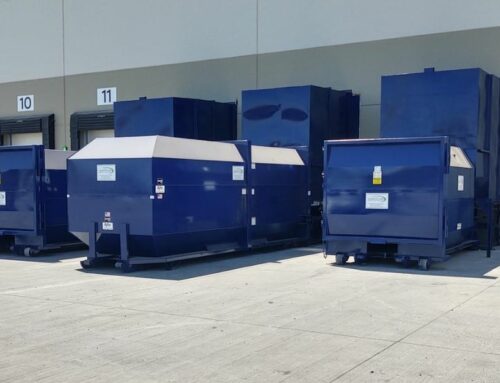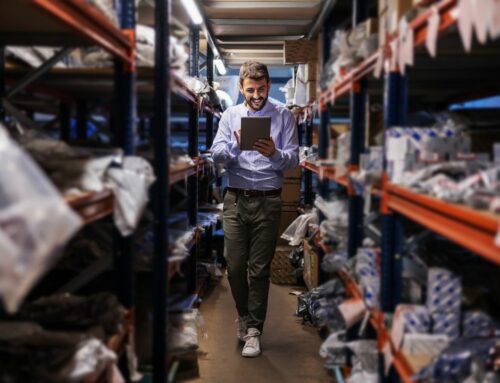I was at a meatpacking facility in Southern California a few years ago when the local trash company came with their truck to retrieve the 30 cubic yard compactor placed at the dock of my client. My client was having an issue with overweight charges from the trash hauler and wanted me to investigate to see what the problem was. While on-site, the roll-off truck lowered its boom and began to pick up the container, the front end of the truck lifted off the ground. Looking toward the cab, I could see the panic in the driver’s eyes, and I, too, was worried as this was not a safe situation. This container had to be significantly overweight to be causing the front of the garbage truck to lift off the ground.
Overweight and underweight compactors are a consistent source of dissatisfaction for owners
How do trash compactors know they are full?
Common with most compactor manufacturers, trash compactors assess fullness based on system pressure. When the trash compactor’s hydraulics reaches an absolute pressure, a pressure switch is activated and indicates to the programmable logic controller (PLC) that the compactor is full. The compactor will shut off until it is reset by the hauler when it is emptied or reset on-site by facility personnel. The pressure switch is an imperfect system as there are several reasons that a compactor’s hydraulic pressure will spike other than a full container. Material jammed in the charge chamber, a rigid object protruding into the press head, or a faulty pressure switch can all cause false positives.
On the opposite end, the spectrum compactors can be overloaded because of this pressure switch system. In the case of the meatpacking facility, the trash compactor was filled with heavy, wet, dense material that was also highly pliable. When the press head of the compactor pushes against this, it may not reach the designated pressure setting indicating fullness until the compactor is well beyond its weight regulations.
To maximize your return on investment, you want the compactor to be as full as regulations in your area will allow so that you are not paying to have a compactor hauled away that is half full, but you also want to ensure that you are not overloading the compactor and facing overweight penalties.
Here are three things to think about when setting up your compactor to optimize your load weights:
Consider your material
Compactor system pressure is set at the factory with national averages in mind. Manufacturers also set system pressure based on what the hydraulic system and its components are designed to handle. A compactor’s system pressure should never be turned up above factory recommended specifications. Still, it may need to be turned down so that you do not overload the compactor and face additional charges from your hauler. Compactor Rentals of America has factory-trained service technicians who can make this assessment and adjust as needed.
Size your compactor properly
Bigger is not always better. If you are compacting light, airy material such as cardboard, then you could be fine using a large container. Wet heavy content such as meat, restaurant waste, or other liquids may require you to downsize your compactor capacity to stay underweight requirements.
Consider a remote monitoring system
There are a handful of options available to monitor and track your compactor’s fullness and performance remotely. From a computer or smartphone, you can tell how full the trash compactor is by percentage and adjust your hauling schedule accordingly. A waste audit performed by our team can help you determine if this is a good option for your facility. Some monitoring systems can even tell you specific diagnostic information on your compactor, such as if the hydraulic oil is low or if an emergency stop button has been pressed.
Get a site survey
If you are unsure of what your needs may be, the Compactor Rentals of America team is here to help. We provide a free site survey to assess your needs and see if a compactor is right for your location. Our representatives visit sites every day and have most likely visited a place like yours. We draw on years of experience with solid waste to maximize your trash compactor benefit. Contact us today to request a site visit!
We’ll Help You Find the Right Solution
Contact us today to learn more about partnering with CRA.
"*" indicates required fields



